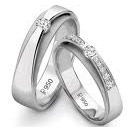Platinum Rates in Surat
Platinum: A Precious Transition Metal : Platinum, symbolized as Pt with the atomic number 78, is a rare and valuable transition metal with distinctive properties that set it apart from other metals. Let's explore some key aspects of platinum:
 Surat Platinum Rate
Surat Platinum Rate
| Date | 1 Gm (Rs) | 8 Grams (Rs) |
|---|---|---|
| 19/April/2025 | 3303.00 | 26424.00 |
| 18/April/2025 | 3303.00 | 26424.00 |
| 17/April/2025 | 3317.00 | 26536.00 |
| 16/April/2025 | 3284.00 | 26272.00 |
| 15/April/2025 | 3237.00 | 25896.00 |
| 14/April/2025 | 3237.00 | 25896.00 |
| 13/April/2025 | 3238.00 | 25904.00 |
| 12/April/2025 | 3238.00 | 25904.00 |
| 11/April/2025 | 3205.00 | 25640.00 |
Platinum vs. White Gold: Contrasting Characteristics
Platinum alloys boast an impressive purity ranging from 90% to 95%, making it one of the most precious metals available. Its density is remarkable, with a six-inch cube weighing approximately 165 pounds. In contrast, white gold is a combination of pure gold with other metals, resulting in a lighter material. Due to its purity, density, and extended processing time, platinum is an excellent choice for diamond settings in jewelry.
The Expensive Nature of Platinum
Platinum's high price is attributed to its rarity and density. If a platinum ring were made of gold, it would weigh significantly more. Platinum alloys are typically 90% to 95% pure, while gold alloys range from 58.5% (14k gold) to 75% (18k gold) purity. Consequently, platinum contributes a larger portion of an item's weight, thus making it more expensive. Authentic platinum jewelry should bear stamps like "PT," "PT900," or "PT950" denoting the purity level.
Platinum: Versatile Applications and Unexpected Uses
Platinum finds wide-ranging applications beyond its role in jewelry. It serves as a catalyst in chemical reactions and is extensively used in catalytic converters for automobiles. Its resistance to tarnishing and corrosion, malleability, and non-reactivity make it ideal for various industries. Around 90% to 95% of platinum alloys are used in jewelry, while it is also employed in manufacturing nitric acid, fuel cell catalysts, strong permanent magnets, turbine engines, electrodes, and oxygen sensors.
Distinguishing Silver from Platinum
At first glance, silver and platinum may appear similar in color, but platinum has a brighter and shinier appearance, while silver has a duller grey tone. In terms of pricing, silver is more affordable compared to platinum. However, platinum surpasses silver in terms of durability. Silver is softer and prone to tarnishing, while platinum has a higher melting point and requires fewer alloys, making it suitable for everyday wear. Additionally, platinum is known for being skin-friendly, making it a preferred choice for individuals with sensitive skin.
Beyond Jewelry: Platinum's Remarkable Applications
Platinum has diverse applications outside the realm of jewelry. It finds use in the petroleum industry, thanks to its catalytic properties in refining fuel and producing high octane fuels. The technology sector benefits from platinum's role in hard disk drive coatings and fiber optic cables, as higher data storage demands drive the need for platinum. The metal also plays a vital role in medicine, including cancer treatments, as well as in glassmaking, chemical industries, and serves as an investment tool for hedging assets against inflation.
In conclusion, platinum's rarity, density, and unique properties contribute to its desirability and its extensive use across various industries.
Platinum Rates Histroy >>
Disclaimer:Platinum Prices indicated in this page makes no guarantee or warranty on the accuracy or completeness of the data provided on this site. Nothing contained herein is intended or shall be deemed to be investment advice, implied or otherwise. Always consult your registered adviser to assist you with your investments.
Other Cities Platinum Rate
- Agra Platinum Rate
- Ahmedabad Platinum Rate
- Allahabad Platinum Rate
- Bangalore Platinum Rate
- Cochin Platinum Rate
- Coimbatore Platinum Rate
- Chennai Platinum Rate
- Delhi Platinum Rate
- Gandhi Nagar Platinum Rate
- Goa Platinum Rate
- Guwhati Platinum Rate
- Gwalior Platinum Rate
- Hyderabad Platinum Rate
- Jaipur Platinum Rate
- Kolkata Platinum Rate
- Lucknow Platinum Rate
- Madurai Platinum Rate
- Mangalore Platinum Rate
- Mumbai Platinum Rate
- Mysore Platinum Rate
- Nagpur Platinum Rate
- Nashik Platinum Rate
- Patna Platinum Rate
- Pondicherry Platinum Rate
- Pune Platinum Rate
- Surat Platinum Rate
- Trichy Platinum Rate
- Tiruvananthapuram Platinum Rate
- Vellore Platinum Rate
- Vijayawada Platinum Rate
- Vishakapattinam Platinum Rate



